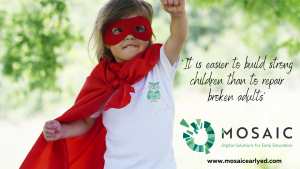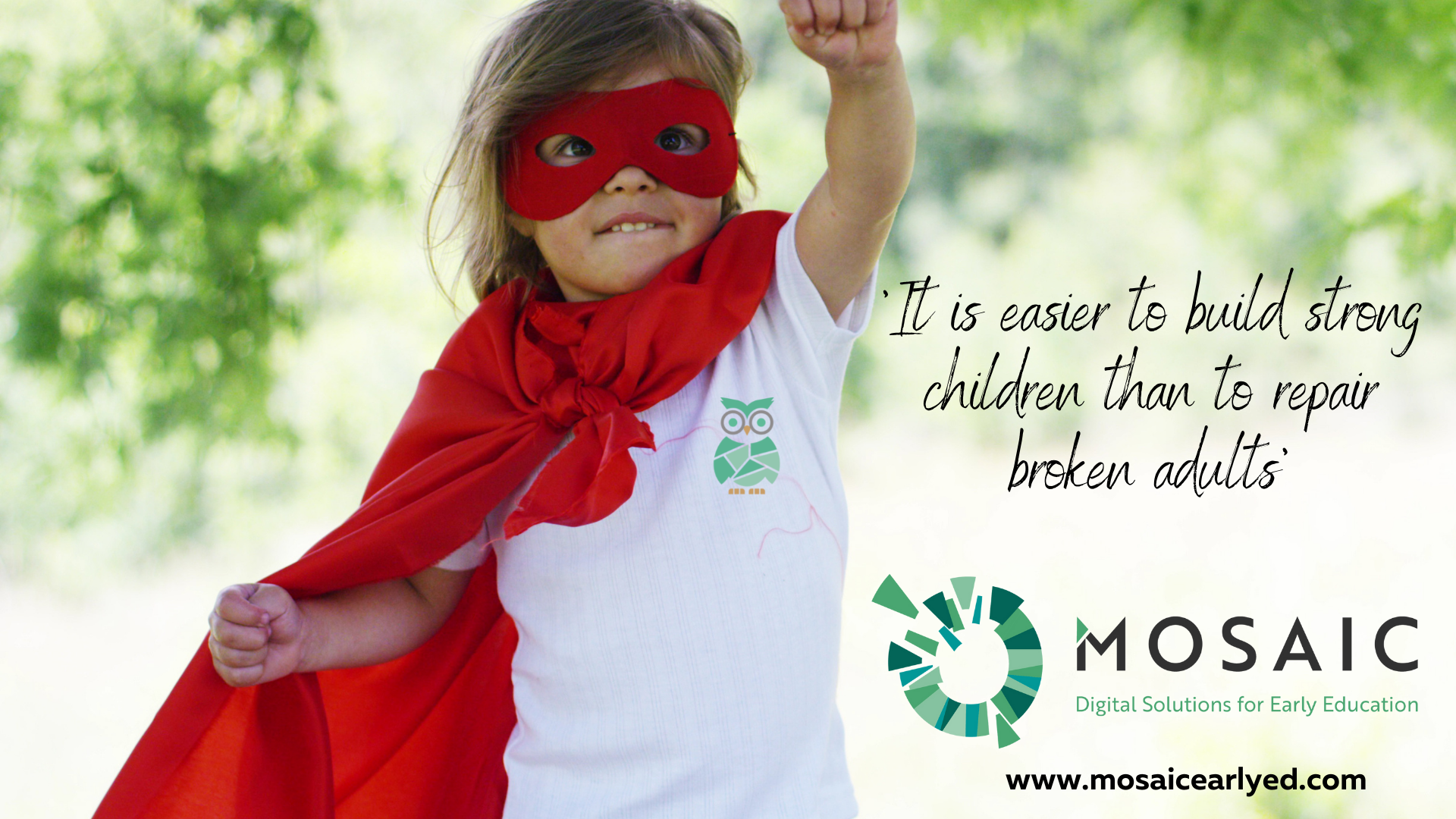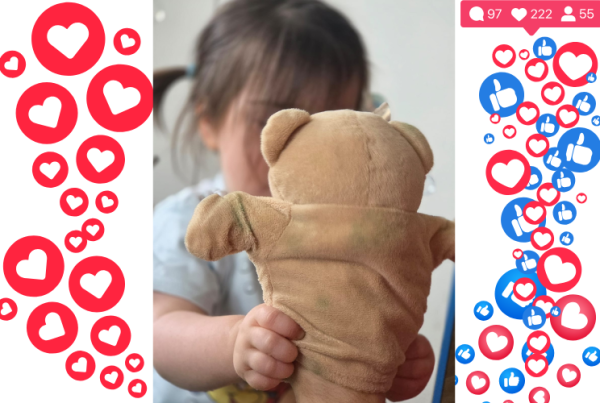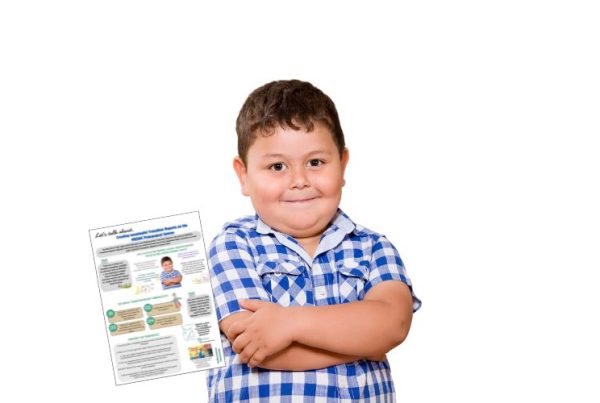
MOSAIC SUPPORTS RESPONDING TO ALL AREAS OUTLINED IN DEPARTMENT OF EDUCATION INSPECTION QUALITY ANALYSIS
We are delighted and further motivated to see that the MOSAIC Child Documentation System and our wider quality supports are right on target! The Department of Education Chief Inspector’s Report 2016-2020 (March 2022) provides an analysis of, and reflection on, the quality of education provision in education settings in Ireland during the period 2016 to 2020.
Key findings relate to:
- The development of emergent, child-centred learning programmes and approaches to assessment, including the use of assessment information to inform the next steps in children’s learning
- Planning practices include a greater emphasis on children’s individual needs and emerging interests.
- The formal sharing of information about children’s learning with parents.
- Transition from pre-school to primary school.
- The use of digital technology in pre-school.
The MOSAIC Documentation System (www.mosaicearlyed.com) in the form of a cloud-based app is ticking all the quality boxes! We are delighted that our framework of supports including the MOSAIC app itself and our CPD and training offerings are responding to the necessary requirements for high quality standards.
The summary below considers the findings from inspection, advisory and research work carried out by Department of Education inspectors in Early Childhood Care and Education (ECCE) Programme and concludes with the MOSAIC response.
The quality of education provision in the Early Childhood Care and Education Programme
The Chief Inspector’s Report (Department of Education, March 2022) presents the key findings of evaluations conducted during the period September 2016 to December 2020 in early learning and care (ELC) settings delivering the Early Childhood Care and Education (ECCE) Programme. In assessing the quality of education provision in ELC settings, the primary model of inspection used by the Inspectorate is the early years education inspection (EYEI) model which is complemented by early years follow-through inspection. During the period September 2016 to March 2020, the Inspectorate conducted 2,248 EYEIs and 195 follow-through inspections. These included inspections in a number of Irish-medium and Gaeltacht ELC settings.
KEY MESSAGES from the report,
The overall quality of provision in almost all ELC settings is good or better.
Context to support learning
The majority of pre-schools inspected were characterised by warm, respectful and open relationships with parents and children. More formal approaches to sharing information with parents on their children’s learning have yet to be developed in many settings.
Processes to support children’s learning and development
The extension of the ECCE programme to afford children up to two years of free pre-school education has posed additional challenges for settings in meeting the differing needs of individual learners.
Planning practices for children with additional needs in ELC settings should be developed further to include a greater emphasis on children’s individual needs.
There has been an increase in the use of play-based approaches to learning. However, because of a misperception that it is the role of ELC settings to prepare children for primary school, some settings have adopted an overly-formalised approach to learning.
The development of emergent, child-centred learning programmes and approaches to assessment, including the use of assessment information to inform the next steps in children’s learning, continue to present a challenge in ELC settings.
There is a good focus on early literacy and numeracy in ELC settings. However, there is potential to improve approaches to support the development of children’s communication and higher-order thinking skills.
Children’s learning experiences and achievement
Quality learning experiences in ELC settings were characterised by child-centred approaches which led to high levels of engagement, enjoyment, motivation and achievement among children.
Where practice required improvement, challenges were most often related to the overuse of adult direction and insufficient opportunities for children to take the lead and use their initiative in activities.
Management and leadership for learning
Internal review and self-reflection and evaluation practices have yet to be embedded consistently in all ELC settings. Greater emphasis on embedding these processes in ELC settings is required. This is identified as a key priority outlined in the First 5; A Whole-of-Government Strategy for Babies, Young Children and their Families 2019-2028.
While early years educators use some strategies to support the transition from preschool to primary school, many ELC settings have yet to establish professional links with their local schools.
Early years educators demonstrate positive dispositions towards engaging in continuing professional development (CPD). However, additional support for and resources tailored to the development of leadership capacity are a priority.
LOOKING FORWARD
Sharing information with parents
ELC settings need to be supported in developing approaches that facilitate the formal sharing of information about children’s learning with parents.
Supporting children’s learning and development
- Consideration needs to be given to the provision of CPD opportunities for ELC providers, particularly in relation to the implementation of an emergent, enquiry-based curriculum, approaches to assessment and differentiated approaches to learning.
- Early years educators in ELC settings should place a greater emphasis on collaborative curriculum/programme planning that supports the provision of a more connected, holistic learning experience for children, and is reflective of children’s perspectives and opinions.
As envisaged in First 5; A Whole-of-Government Strategy for Babies, Young Children and their Families 2019-2028, the Inspectorate will continue to work with the Department of Children, Equality, Disability, Integration and Youth (DCEDIY), the Tusla Early Years Inspectorate and the Better Start National Quality Development Service to develop a coherent single quality framework, and to better integrate and coordinate inspection and quality supports.
Use of digital technology in ELC settings
Further research and engagement with the ELC sector should be undertaken to develop guidance regarding best practice in young children’s use of digital technology in ELC settings. The ELC sector should also be included in future digital learning strategies.
Supporting the transition from pre-school to primary
All ELC settings should be supported to establish professional links with their local primary schools in order to facilitate the effective transitioning of children from preschool to primary education.
How does MOSAIC support these quality standards?
‘MOSAIC Educator’ is an innovative, secure, child documentation system on a cloud-based app designed especially for early childhood services. The MOSAIC platform contains a range of pedagogical tools to support the work of the professional educator. Designed as an electronic storybook, MOSAIC brings together multiple components of quality to capture the magic of early learning.
Through the interconnecting ‘MOSAIC Family’ App, the early childhood service and nominated family members can access regular updates in the form of photographs, videos, learning stories and reports. For children under 3, daily care records are also communicated directly to a parent’s phone or tablet in real time.
- The MOSAIC e-storybook is framed around a strength-based, individual child approach, assessment for learning and emergent curriculum planning.
- Information is shared with parents in real time incorporating meaningful parental engagement with learning stories and communication. Parental engagement statistics are recorded as evidence.
- Transition reports are incorporated into the MOSAIC system and MOSAIC will be the first system to include a child participation function in September 2022 as our response to children using technology in preschool.
- MOSAIC provides an easily accessible evidence base for viewing by external organisations.
This combined with our range of online and live CPD programmes (www.earlyedcpd.ie) on Emergent Curriculum, Learning Story Assessment for Learning, Transition and many more, provide the professional development supports for educators striving to increase quality standards in professional pedagogy and early education provision.
To find out more about the MOSAIC Educator Child Documentation System, to book a demonstration or find out about our range of quality supports, see www.mosaicearlyed.com or email us at [email protected]
To find the report, please CLICK HERE




